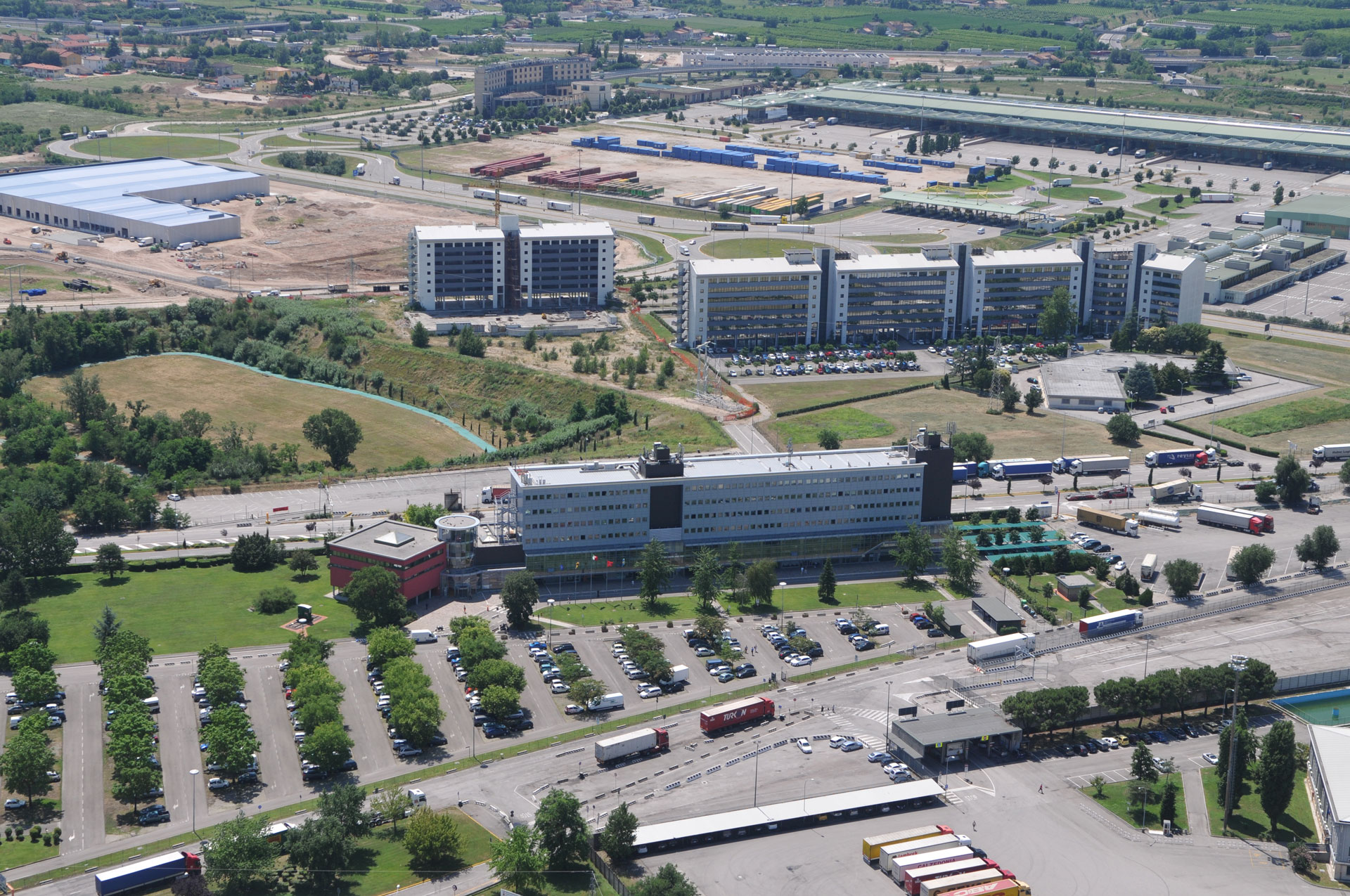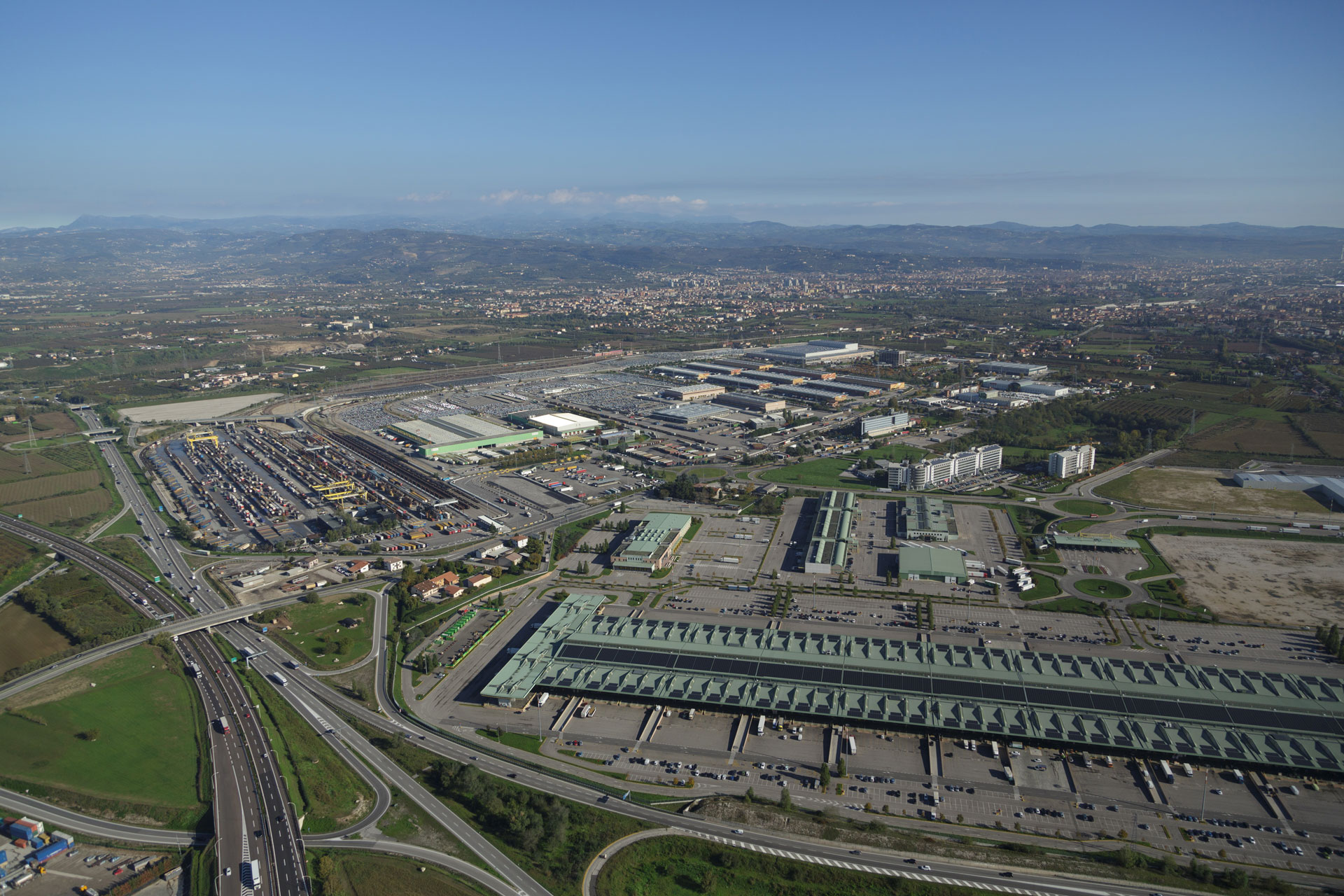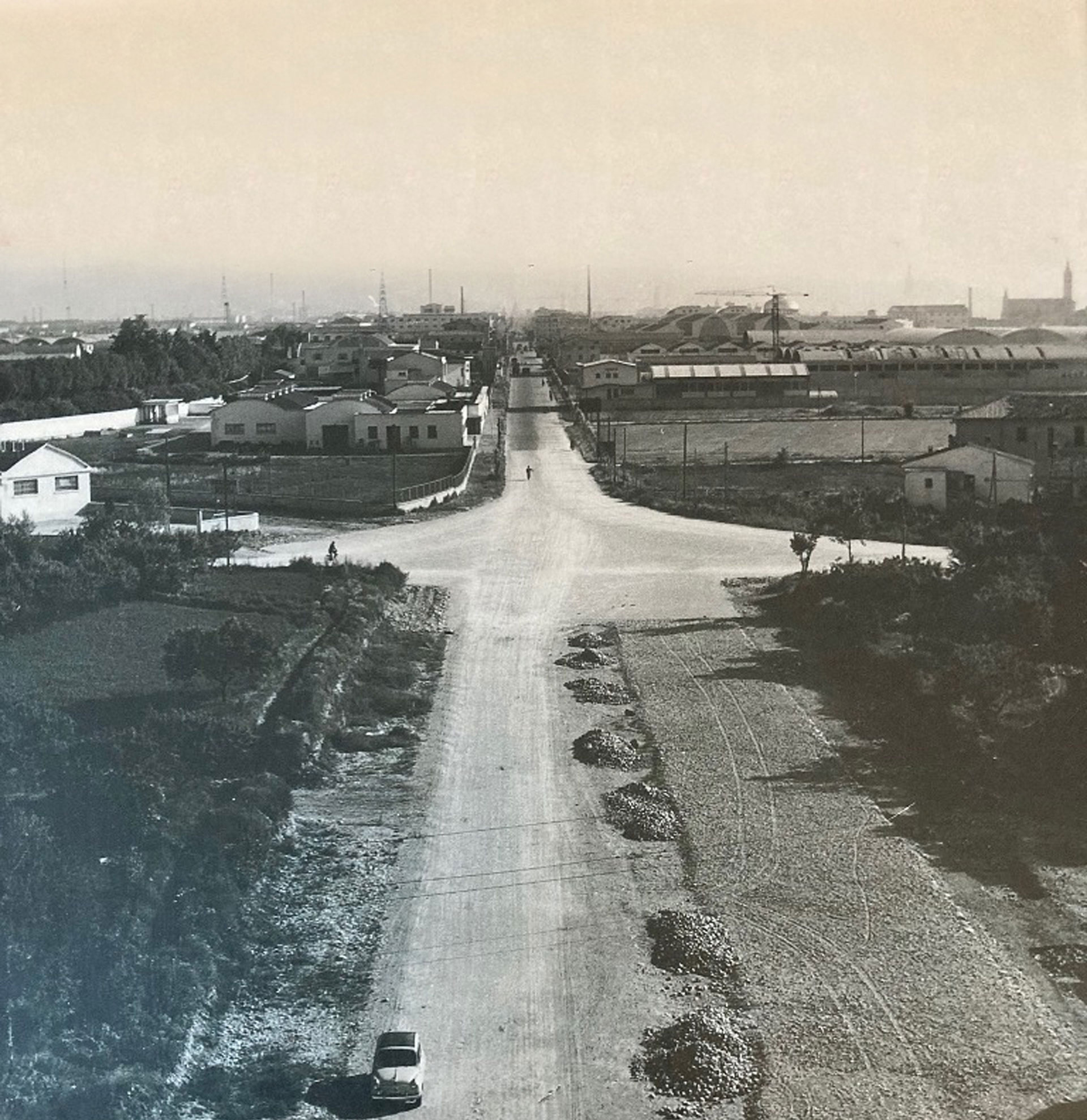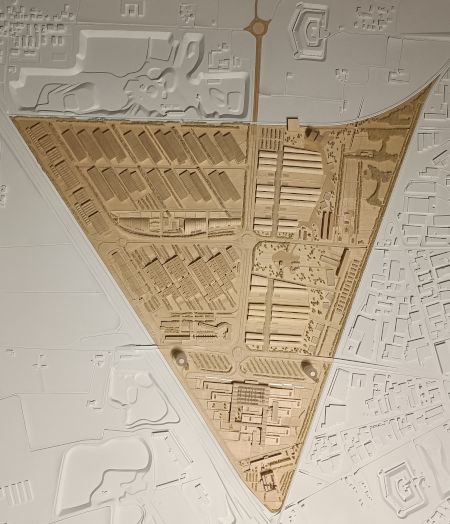Consorzio ZAI
Company
Since its establishment in 1948, the Consorzio ZAI has been working towards the development of the Veronese economy. As an institutional and territorial organisation, its task is town-planning and boosting the global development of the territory and economy.
Consorzio Zai projects are based on a careful study of logistics in order to favour Veronese industries that have thus been able to make good use of the rail, road, air and river routes. The Consorzio is responsible for four areas within the Veronese district: the industrial zone known as Zai Storica, a second industrial zone called Zai Due-Bassona, the Quadrante Europa district, and the Marangona-Innovation area. Overall it is an authentic infrastructure system of 10 million square metres which constitutes a natural economic strong point with 1,000 companies and 40,000 workers.


Mission
Planning, farsightedness and practicability, are the main features of the Consorzio Zai's 60 years' work. The association is facing the third millennium in the conviction that the greatest advantage for the city and the territory lies in the activity of organisations interested in research, creativity and change.
The Consorzio's ability to predict future scenarios has been proved continually over the years: from the dawning of the first ZAI in Italy to the creation of a freight terminal, the Quadrante Europa, which is the Italian leader in terms of combined goods traffic volumes and internationally recognised as the best freight terminal in Europe, to the construction of an Innovation Area. The latest zone under the Consorzio's jurisdiction will be the Innovation Area, an avant-garde zone just like the Interporto Quadrante Europa, the Consorzio's pride and joy. This latter area is an authentic, highly specialised "goods city" governed by high level integrated logistics systems and equipped with a telecommunications network throughout the entire area.
History
70 years ago Verona was tested by the war. It was time to worry about the reconstruction of a city that was already known all over the world on an artistic and cultural level. The economic engine of the city with its industries, trade, agriculture and crafts had to start. It was necessary to structure the city of the economy, a new city not extraneous to the previous one, but integrated with it in compliance with its specific functions.
The birth of Consorzio ZAI starts from these premises: a pool of men from the Chamber of Commerce, the Municipality and the Province had the intuition in 1948 to establish what will be the first Industrial Agricultural Area in Italy. The activity begins with the expropriation of land to the farmers of the area for the assignment to holders of processing and marketing companies of agricultural products. The consortium then proceeds to urbanization, the construction of road and rail links and the infrastructure of the areas.

Future
From the beginning with the first ZAI in Italy to the creation of the Interporto Quadrante Europa, Consorzio ZAI has always anticipated future scenarios.
Planning, foresight and concreteness are the characteristics of over 70 years of work of the ZAI Consortium, which faces the third millennium with the belief that the greatest advantage for a city and for a territory lies in the activity of organizations interested in research and development.
In the coming years, Interporto Quadrante Europa will develop with the PUA QE Nord on a further 500,000 m² entirely dedicated to logistics, with warehouses up to 40,000 m2, a reorganization of common areas and services and a new internal road system, in addition to the new 750 m² terminal adapted to the community standard and with a road network connected to the high-speed railway.
Furthermore, Consorzio ZAI will expand the range of opportunities in a newly conceived area of 1.4 million m² adjacent to Quadrante Europa and directly connected to the Milan-Venice motorway: the "Marangona" area, designed on the principles of sustainability, environmental, economic and social development, which will host companies of various sizes and different uses (manufacturing, trade, and logistics).
Finally, Consorzio ZAI remains faithful to its commitment to decarbonise and reduce its environmental impact. The continuous investments in new technologies, such as the LNG station, the charging stations for electric cars, and the new lighting systems with reduced light pollution are placed in this context.



